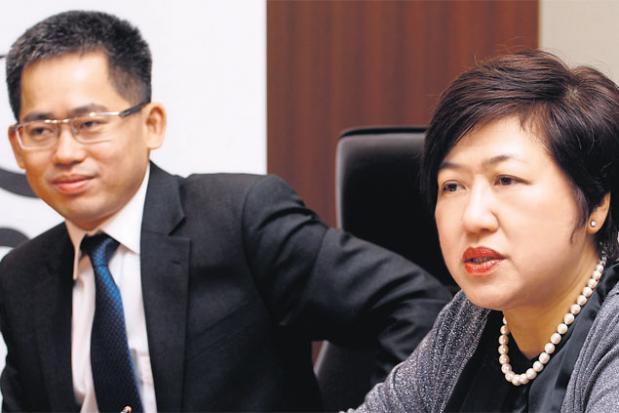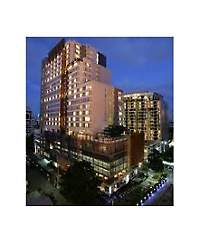HSBC Bank (Vietnam) chief executive Pham Hong Hai (left) and HSBC Thailand chief executive Tan Siew Meng believe Vietnam offers opportunities for Thai firms.
Retail and manufacturing are sectors where Thai corporations could engage in mergers and acquisitions (M&A) in Vietnam, while the banking and telecommunications sectors are considered other attractive M&A areas.
Foreign businesses listed on Vietnam’s stock exchanges can hold up to 49% of shares in a company operating in certain industries, while there is no cap on foreign ownership for non-listed firms except for some specific industries such as banking, said Pham Hong Hai, chief executive of HSBC Bank (Vietnam).
For banking, the cap on foreign ownership is 30% for both listed and non-listed companies.
“There have been some discussions at government level that they could increase the cap to 60% this year [for listed companies] and this could create opportunities for M&A going forward,” Mr Pham said.
Thailand ranked 10th in terms of foreign countries investing in Vietnam as of Feb 20, with investment inflows totalling US$6.7 billion, according to the Vietnamese Planning and Investment Ministry’s Foreign Investment Agency.
Apart from being relatively close to Thailand and having a large population of 91 million, Vietnam is well-positioned for Thai investors thanks to its young population — less than 29 years old on average — political stability and cheap and skilled workforce.
Unclear foreign investment regulations, increased non-performing loans in the property sector, uncertainty surrounding the government’s economic policies after next year’s election, and geopolitical risks are deemed as potential obstacles for investment, he said.
Thailand’s large corporations are expected to use Vietnam as a manufacturing hub for re-exporting their products in the next five years, reaping benefits from that country’s cheap and skilled workforce.
“Most Thai investors are investing in Vietnam to sell only to the domestic market at the moment, but a second way will be to use Vietnam as a hub to export to other countries to take advantage of cheap labour costs,” Mr Pham said.
Major foreign companies have adopted this strategy, he said, citing how Samsung, Intel and Nokia have decided to set up factories in Vietnam.
Mobile phones, computer equipment and garments are segments that could receive investment flows from Thai companies in the coming years as part of the re-exporting approach, Mr Pham said.
“It is a very good opportunity for Thai companies to introduce new products into the consumer segment in Vietnam. With its young population and strong consumer demand, that is where the sweet spot is at the moment,” Mr Pham said.
He said Thailand’s major corporations had been expanding their investment portfolio in Vietnam in recent years, particularly sectors related to retail, manufacturing and consumer goods, to reap benefits from a cheap and educated workforce.
Investments in Vietnam’s infrastructure in the next 10 years are certain to increase demand for construction materials.
Mr Pham said investments in Vietnam by Thai small and medium-sized enterprises (SMEs) still lagged behind those of major corporations due to a lack of understanding of the market and regulations.
HSBC Thailand chief executive Tan Siew Meng said: “If you draw an analogy in Thailand, the Japanese are one of the largest investors in Thailand and they have brought in their SMEs over the years for supply chain purposes.”
Source: http://www.bangkokpost.com/business/finance/512087/vietnam-opens-door-to-thais

